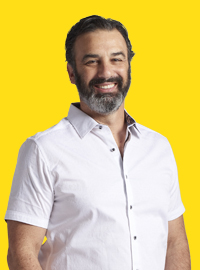There’s an understanding amongst professional communicators who have worked in agencies. Most of us believe communications firms are terrible at sharing information with our own teams. It’s an ironic yet unfortunate reality that reflects the cobbler’s children having no shoes.
I wish Elasticity was some shining exception to the rule. We work very hard to take good care of our team. But as far as regularly articulating that care and concern, we’re just flawed human beings trying our best to run a fast-growing organization and make it a really great place to work. Sometimes we succeed and sometimes we do not. The reality is we’re in a service business with a service mindset — always focused on the next deadline and putting our clients’ needs before our own. Nevertheless, the collateral damage becomes our own teammates.
It all reminds me of one of those super-businessy quotes that has always stuck with me. It goes something like, “Effective organizations speak with one another; failing organizations talk about one another.”
In my opinion, ensuring an organization has a with culture instead of an about culture is paramount — a belief that is largely shaped by my personal experiences.
I grew up in an environment that was bereft of truth. As a result, I made a a commitment to myself at a young age — that I would be brutally candid and transparent about my opinions to pretty much anyone who asks me. This has been both a blessing and a curse. Some appreciate my candor. However, many do not appreciate my willingness to share unvarnished sentiments when they are negative, which is just human nature as we are not wired to like criticism.
Organizationally, when teams do not speak with one another, and instead, speak about one another — divisions are created. This is demonstrated in no clearer context than in today’s political spectrum.
Conservative news says one thing about liberal Americans but most liberals refuse to pay attention. Liberal news says another thing about conservative Americans who then ignore what is being said by liberal media. The result: Cancel Culture — both liberals and conservatives, unwilling to speak or listen to one another, canceling one another out, unwilling to find middle ground or work productively as one.
It’s why, in his fascinating article in The Atlantic about the damage being done to global society by social media, NYU social psychologist Jonathan Haidt writes, “America is being torn apart by a battle between two subsets of the elite who are not representative of the broader society.”
These behaviors are seen by psychologists as degrees of passive aggression, or expressing feelings indirectly through a range of behaviors that are often subconsciously designed to deliver a message steeped in anger without directly delivering a message to another person. Just imagine if America and our political divide was occurring inside a company? We’d be screwed.
My three closest confidants at Elasticity are a Constitutional Libertarian who grew up on a farm, a Puerto Rican who is a devout Catholic, and a metal-head who grew up in the First Baptist church; while I am a suburban, politically centrist, godless, country music-loving imbecile. Yet, because we have open communications with one another about our differences — we respect each other’s viewpoints.
The reality is that human beings are not drones and members of organizations or companies do not need to mechanically believe and think as one. They must, however, function as a unit. And this is much more effective if, instead of speaking about one another — they speak with one another. Otherwise, the aggregate often fails.
Saying you want to move from an about to a with culture is easier said than done. Additionally, exacerbating all of this is COVID-19, which has put most of us in bunkers, communicating largely with those we like most, rather than those we might need to be speaking with on a regular basis — even in work circles.
If we want to be a part of an effective organization, we must speak with our teams and colleagues to solve the very real challenges we face each day. It’s up to each of us. We all have choices in business and life. We have opportunities to be a part of the problem or a part of the solution. Yes, COVID has made it more challenging. So we must double-down and sometimes go against our very nature (if you are more insular). But if you want to play a role in a healthy organization that functions as a team, you must speak with your teammates to solve the challenges we face every day.
PS: I hate that Andy Barnett guy. He’s the worst. Just don’t tell him.



